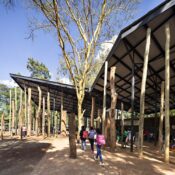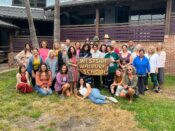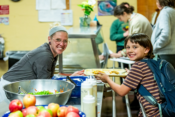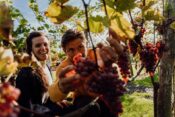 Summer Programs - Culminating Class Trips
Summer Programs - Culminating Class Trips Caring for All Stages of Life
Caring for All Stages of Life Immersive Academics and Arts
Immersive Academics and Arts Everything a Teacher Needs
Everything a Teacher Needs Jamie York Books, Resources, Workshops
Jamie York Books, Resources, Workshops Middle School Science With Roberto Trostli
Middle School Science With Roberto Trostli Waldorf-inspired Homeschool Curriculum
Waldorf-inspired Homeschool Curriculum Flexible preparation for your new grade
Flexible preparation for your new grade Storytelling Skills for Teachers
Storytelling Skills for Teachers Roadmap to Literacy Books & Courses
Roadmap to Literacy Books & Courses Bringing Love to Learning for a Lifetime
Bringing Love to Learning for a Lifetime Waldorf EC Training & Intensives in Canada
Waldorf EC Training & Intensives in Canada Train to Teach in Seattle
Train to Teach in Seattle Art of Teaching Summer Courses 2025
Art of Teaching Summer Courses 2025 ~ Ensoul Your World With Color ~
~ Ensoul Your World With Color ~ Apply Today: New Cohort Starts Nov. 2025
Apply Today: New Cohort Starts Nov. 2025 Bay Area Teacher Training
Bay Area Teacher Training Full-Time Teacher Education
Full-Time Teacher Education Association for a Healing Education
Association for a Healing Education Enliven Your Teaching!
Enliven Your Teaching! Grade Level Training in Southern California
Grade Level Training in Southern California The Journey is Everything
The Journey is Everything The Art of Administration and Leadership
The Art of Administration and Leadership Dancing for All Ages
Dancing for All Ages Quality Education in the Heartland
Quality Education in the Heartland Transforming Voices Worldwide
Transforming Voices Worldwide Space speaks. Its language is movement.
Space speaks. Its language is movement. Discovering the Wisdom of Childhood
Discovering the Wisdom of Childhood
Would you like to become a sponsor?
Waldorf News

True, Kind, Necessary, Securing
February 4, 2025
Most every wisdom tradition cautions for the wise use of words, acknowledging their tremendous power to inspire and to wound. This might be most obvious on the world stage, where the words of someone like Martin Luther King Jr. can echo through history, capturing an era and galvanizing change. But I see the power so much more commonly wielded in the family. Through the noise and bustle of daily life, a parent’s words can help shape the way a child sees the world and, most importantly, sees themselves. In our era of spin and counter-spin, when words are parsed and split, where news stands beside opinion and embraces blogs, meaning is often drowned out. Just as it’s hard to cherish a toy lost in the middle of a mountain of play-things, when we say less, our words mean more. More »

Nairobi Waldorf School
February 4, 2025
A Village for Kids Hidden in the Woods - The project was commissioned by a Waldorf school in Nairobi, an institution deeply connected to nature and grounded in Anthroposophy. The concept was to create a small village for children nestled within the woods, preserving the old house on-site to accommodate additional classrooms and services. The land was a forest rich with native tree species, and the goal was to integrate the school harmoniously into the natural environment. To achieve this, classrooms were designed as a dispersed town, strategically placed in clearings within the forest. The classrooms have soft and organic shapes, with a spiral configuration, inspired by the maasai manyatas and other Kenyan vernacular architectures. The buildings needed to be constructed quickly, cost-effectively (achieving a cost of 250$/m² or about $22.75 per square foot), and with a temporary lifespan, as the plot lease is set to expire in 10 years. More »

From the Editor
January 13, 2025
Two Waldorf schools have seen their campuses lost to the fires in Los Angeles. In addition to losing their schools, many students, families and faculty have faced loss of their own homes and displacement. The articles below are in each school's own words, which are far more eloquent and heartfelt than anything I could have written. -David More »

Kimberton Waldorf parents, students and staff grow, harvest and cook the school’s daily lunches
January 7, 2025
Every Monday around 9 a.m., Kimberton Waldorf School’s Food for Thought lunch program stocks up on Seven Stars Farm maple and vanilla yogurt. Located just across the street, the biodynamic farm is among the many local food producers and growers the school uses to source ingredients for their daily lunch menu. The agricultural hub of Kimberton, located in Southeastern Pennsylvania’s Chester County, makes the school’s location ideal for easy access to a range of seasonal produce that’s either organically or biodynamically grown. Current partners include Seven Stars Farm, Kimberton CSA, Sankanac CSA, and Lancaster Farm Fresh Co-op, among others. Right on Kimberton’s 430-acre campus, the school’s two-acre organic/ biodynamic garden provides opportunities for the kitchen to preserve their bounty to last through the upcoming school year. “I look forward to working closely with the planning of the garden to compliment a seasonal menu,” says Lianna Criniti, the school’s newly appointed kitchen manager and chef. Gardening is interwoven with the curriculum and children at KWS experience the school’s acclaimed garden program from the elementary years through high school, so they give a hand in helping to create Criniti’s wholesome meals. More »

‘You have to find your own recipe’: Dutch suburb where residents must grow food on at least half of their property
December 2, 2024
When Marco de Kat starts planning his meals, he doesn’t need to travel far for fresh food. Right outside his house is an 800 square metre plot with all sorts of produce – apples, pears, peppers, basil, beets and cauliflower, to name a few. During the winter months, he and his wife can pretty much survive off the vegetables stored in their freezer. Even after living in Oosterwold for a number of years, it’s something that still excites him. “Yesterday, I forgot to think about what to eat,” he says. “You walk through your garden and you find something and that’s what you eat.” Oosterwold, where de Kat has lived since 2017, is a 4,300 hectare (10,625 acre) urban experiment located in the north-east of the Netherlands, in a suburb of the city of Almere, where de Kat works as a municipal councilor. First visualized about a decade ago by a local network, it was established by local government and Oosterwold planners as a way to challenge the rigidity of Dutch city planning, giving people more freedom – and responsibility – over the urban design process. The area, which has about 5,000 residents and a growing waiting list, is completely self-sufficient. Residents can build houses however they like, and must collaborate with others to figure out things such as street names, waste management, roads, and even schools. But the local government has included one extremely unusual requirement: about half of each plot must be devoted to urban agriculture. More »
 Recent Jobs
Recent Jobs
View more jobs »
 Newsletter Archive
Newsletter Archive
 Join the Mailing List!
Join the Mailing List!
Stay Connected…
Each week receive the Waldorf News Weekly Update, full of news, events, and more. Keep abreast of what's happening with Waldorf education.
 RSS Feeds
RSS Feeds